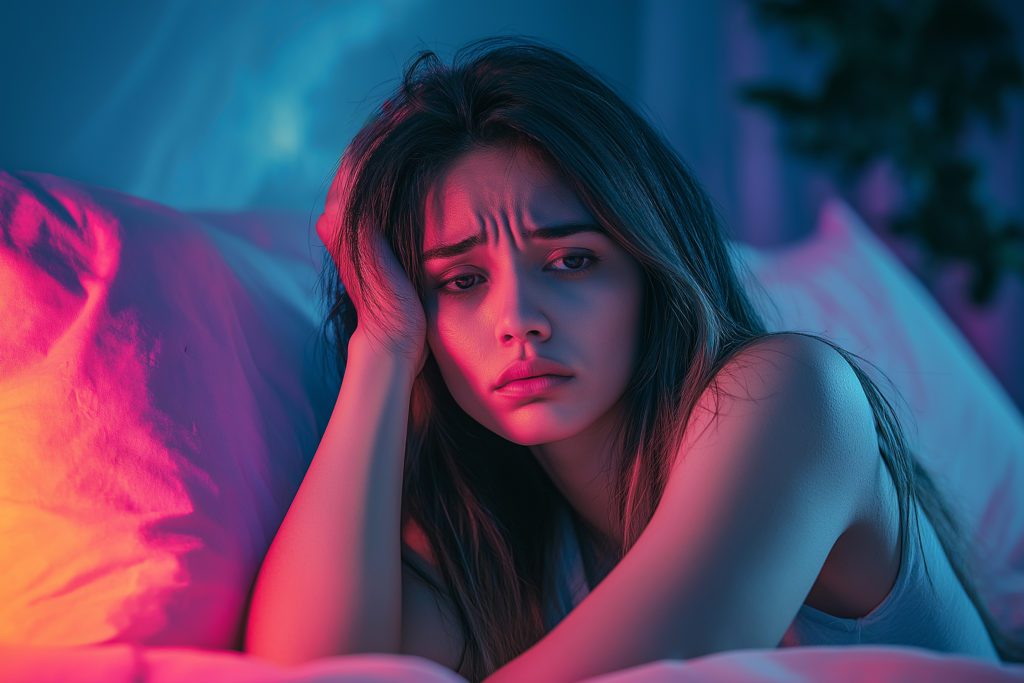
Is Four Hours of Sleep Enough for Health and Wellness?
Learn what really happens when you only sleep for a few hours each night.

Can you really get by on just four hours of sleep a night? Don't count on it. While the standard recommendation for nightly sleep is eight hours, people generally need between seven and nine based on their biology. Only a very small handful of humans will only require four hours of sleep per night to function. However, that hasn't stopped most people from drastically reducing how much they sleep per night due to busyness or life circumstances. Is four hours of sleep enough for health and wellness? Take a look.
Here's Why You Shouldn't Try to Sleep Just Four Hours a Night
"For adults, getting less than seven hours of sleep a night on a regular basis has been linked with poor health, including weight gain, having a body mass index of 30 or higher, diabetes, high blood pressure, heart disease, stroke, and depression," according to doctors at Mayo Clinic. People who don't get enough sleep also struggle with chronic sleep deprivation. Symptoms of sleep deprivation include clumsiness, depression, difficulty focusing and learning, memory issues, and irritability. When we don't get enough sleep, our bodies also crave sugary, high-fat, and high-carbohydrate foods that can cause weight gain or harm our health. Over time, chronic sleep deprivation also weakens the immune system. It can also make us susceptible to type 2 diabetes, heart disease, and cancer. That's before you even mention the fact that being sleep deprived can make a person more vulnerable to accidents and injuries.
Why Do Some People Feel Like They Only Need Four Hours of Sleep?
If you feel like you get by just fine on four hours of sleep, you may belong to a group scientists call short sleepers. People with short sleeper syndrome (SSS) need less sleep than a person typically needs. Most get six hours or less of sleep per night. Upon waking, they feel alert and rested. Currently, there are no known health risks associated with SSS. Short sleeper syndrome is believed to be caused by a rare genetic mutation. Generally, a person will know that they're a short sleeper during childhood. This isn't something you'll develop later in life. However, many short sleepers do report needing even less sleep as they age. Short sleepers are incredibly rare. Here are the signs that you're one:
- You only sleep between four and six hours every night.
- You cannot force yourself to sleep seven, eight, or nine hours.
- You wake up early even if you don't need to get to work, school, or some other obligation.
- You feel rested and refreshed when you wake up in the morning.
- You fall asleep easily at night.
- You don't need an alarm clock to wake up.
- One of your parents was a short sleeper. The short-sleeper gene is transmitted from parent to child.
For short sleepers, the four to six hours of sleep they get each night will provide the same effects and benefits as getting seven to nine hours for everyone else. You are not a short sleeper if sleeping for just four hours per night causes you to feel groggy, irritable, excessively hungry, or confused. This is true even if you can't sleep longer than four hours. If this is the case, you may be suffering from another underlying condition that is affecting sleep duration even though your body still requires the standard eight hours to function.
What Else Can Cause a Person to Sleep Less Than Four Hours?
Short sleep syndrome is not considered a sleep disorder by medical professionals. However, some people who "think" they only need four hours of sleep may be suffering from a sleep disorder that is disrupting sleep. While they are sleeping the same amount as valid short sleepers, they are struggling with the health and cognitive deficits caused by prolonged sleep deprivation. Sleep disorders that can cause short sleep duration include:
- Insomnia
- Sleep apnea
- Restless leg syndrome (RLS)
- Hypersomnia and narcolepsy
- Nocturnal panic attacks
- Circadian rhythm disorders affecting a person's problems with sleep-wake cycle
- Parasomnia that includes walking, talking, or eating while asleep
If you suspect that you're one of the lucky few with short sleep syndrome because you only sleep for around four hours per night, it's important not to self-diagnose yourself. Sleep experts recommend being tested to rule out sleep disorders before confirming SSS.
Many mental health conditions can also harm sleep quality. For example, anxiety, depression, and bipolar disorder are all associated with poor sleep. In some cases, daytime napping caused by poor mood can cut the need for eight consecutive hours of sleep at night. Additionally, people in manic episodes will sometimes feel as though they do not need to sleep.
Some people don't get many hours of sleep each night due to physical health problems. For example, having chronic pain can make falling asleep or staying asleep difficult. Heartburn/acid reflux, diabetes, kidney disease, and musculoskeletal disorders are all associated with reduced sleep quality and nighttime wakefulness.
Don't Forget About Habits
Your lifestyle may be causing you to think you only need a few hours. Some people assume that they only need four hours of sleep because they have poor sleep hygiene habits that prevent them from sleeping longer. For example, consuming coffee, tobacco, or other stimulants later in the day can harm sleep duration. You may also be waking up earlier than intended because of streetlights or other types of artificial light streaming into your room each night. If you have housemates who stay up late or arrive home late in the night, being jolted awake by their activity may cause you to think that your body has simply had enough sleep.
The chances that you only need four hours of sleep each night are slim. However, it's not impossible. It's possible that you have short sleeper syndrome. For the majority of people, sleeping just four hours a night is dangerous. Are you curious what your sleep really looks like? Pillow is an app that creates sleep insights to help you determine how many hours of sleep you're actually getting each night.

Written by
Emily Mendez
Emily Mendez is a former therapist and mental health author. She is one of the leading voices in mental health. Emily's writing has appeared in eCounseling, SonderMind, and more. Emily is frequently interviewed by Healthline, Fatherly, INSIDER, Family Circle, and other national media for her advice and expert opinion on the latest mental health topics.
Download Pillow
Get help
Press & News
Legal
Connect
X (Twitter)
Company
Copyright © Neybox Digital Ltd.



